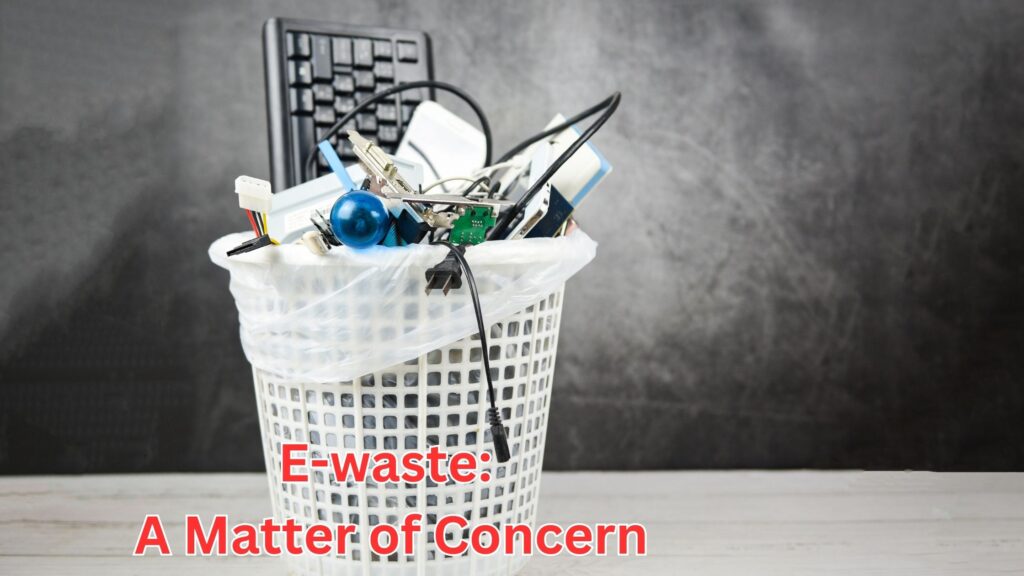Electronic waste, or e-waste, is one of the fastest-growing waste streams in the world. With the rapid advancement of technology and the ever-increasing demand for electronics, it is becoming increasingly important to dispose of e-waste properly. In India, the disposal of e-waste is a major concern due to the lack of proper infrastructure and regulations. This blog post will discuss how to dispose of e-waste in India properly.
What is E-waste?
E-waste refers to any electronic device that is no longer in use or has reached the end of its useful life. This includes computers, mobile phones, televisions, refrigerators, and other electronic devices. E-waste is often hazardous and contains a variety of toxic substances, including lead, mercury, and cadmium. When improperly disposed of, these substances can leach into the soil and water, causing environmental and health problems.
E-waste problem in India
India ranks 177 amongst 180 countries and is amongst the bottom five countries on the Environmental Performance Index 2018, as per a report released at the World Economic Forum 2018. This was linked to poor performance in the environmental health policy and deaths due to air pollution categories. Since 2018, India generates more than two million tonnes of e-waste annually and imports huge amounts of e-waste from other countries around the world. Dumping in open dumpsites is a common sight which gives rise to issues such as groundwater contamination, poor health, and more.
It has been reported by the Centre for Occupational and Environmental Health at Maulana Azad Medical College in New Delhi that extreme level of lead, mercury and chromium is discovered in the bodies of these recyclers and dismantlers. This subsequently has a bearing on their bodies and results in damage to the respiratory, urinary and digestive systems. It also damages the immune system and has been associated with certain kinds of cancer. Therefore, the need of the hour is the proper handling of electronic wastes to avert human suffering and in the foreseeable future, the long-term degradation of our environment and ecosystem is averted as well.

So..how do we dispose of E-waste?
E-waste collection centres:
Many cities in India have e-waste collection centres where you can drop off your old electronic devices. These centres are usually run by municipal corporations or private companies and ensure that your e-waste is properly disposed of. You can find a list of e-waste collection centres in your city by searching online or contacting your local municipal corporation.
Manufacturer take-back programs:
Many electronic manufacturers have take-back programs in place that allow customers to return their old devices to the manufacturer for proper disposal. These programs are often free and can be a convenient way to dispose of your e-waste. You can check with the manufacturer of your device to see if they have a take-back program in place.
Authorized e-waste recyclers:
There are several authorized e-waste recyclers in India who can safely dispose of your e-waste. These recyclers follow strict environmental and safety standards to ensure that your e-waste is properly recycled or disposed of. You can find a list of authorized e-waste recyclers on the Central Pollution Control Board’s website. ( Click here –https://cpcb.nic.in/e-waste-recyclers-dismantler/)
Donate or sell your old devices:
If your old electronic device is still in working condition, consider donating it to a charitable organization or selling it to a second-hand electronics dealer. This can help extend the life of the device and reduce the need for new electronic devices.
Sustainable practices:
- Buy from brands that have an Extended Producers Responsibility policy.
- Practice 3 Rs – reduce, reuse and recycle
- Look out for recyclers, brands’ collection centres, PROs
- Give off e-waste to government-approved dismantlers
What should you do before disposing of your e-waste?
Before disposing of your e-waste, there are a few things you should do to ensure that your personal information is protected:
Firstly, back up and delete all personal data: Before disposing of your old device, make sure to back up and delete all personal data, including photos, documents, and other sensitive information. Secondly, remove SIM cards and memory cards: If your device has a SIM card or memory card, make sure to remove them before disposing of the device. Finally, reset your device to factory settings: Resetting your device to factory settings will wipe all personal data from the device and ensure that it is ready for disposal.
The problem of e-waste in India requires a collaborative effort from the government, businesses, and the public. By implementing effective policies and regulations, promoting recycling, encouraging responsible disposal, creating awareness, and supporting informal sector workers, we can effectively manage e-waste.

About the author
Akansha Gupta is an aspiring environmentalist who is passionate about the environment and wildlife.

